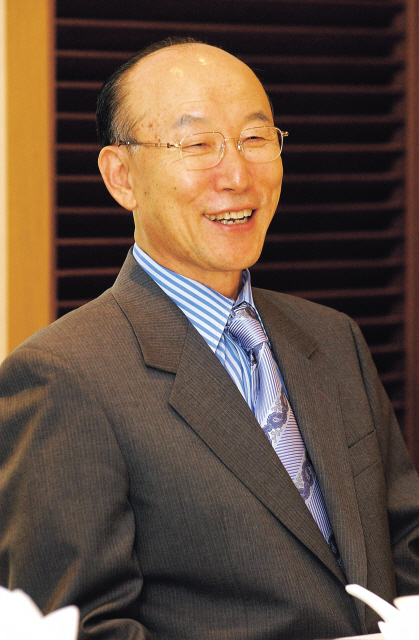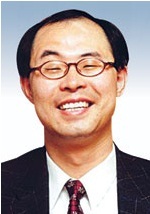Churches grapple with earthly ‘sins’
Congregations, public frustrated by scandal after scandal
By Korea HeraldPublished : March 10, 2013 - 20:23
Protestant churches here are grappling with various scandals involving their leaders and high-ranking members.
From tax evasion to inappropriate inheritance of leadership, fabrication of reports and influence peddling, slews of allegations of unethical deeds are turning away congregations, insiders said.
The following are just a few of the scandals enveloping Protestant church leaderships.
Tax evasion, breach of trust
The Seoul Central Prosecutors’ Office last week said it was investigating allegations that David Cho, founder of Yoido Full Gospel Church, had evaded about 6 billion won in gift taxes and inflicted a more than 15 billion won loss on the church through inappropriate stock investment with church funds.
From tax evasion to inappropriate inheritance of leadership, fabrication of reports and influence peddling, slews of allegations of unethical deeds are turning away congregations, insiders said.
The following are just a few of the scandals enveloping Protestant church leaderships.
Tax evasion, breach of trust
The Seoul Central Prosecutors’ Office last week said it was investigating allegations that David Cho, founder of Yoido Full Gospel Church, had evaded about 6 billion won in gift taxes and inflicted a more than 15 billion won loss on the church through inappropriate stock investment with church funds.

Cho had already been summoned by the prosecutors over similar suspicions in November last year upon complaints filed by 30 of the church’s elders, claiming he ordered church management to buy stocks of a company his son owned for a higher-than-market price, which resulted in the financial damage soon after.
David’s son, Hee-jun, the former chairman of the Kukmin Ilbo newspaper, has been indicted for misappropriating company funds to pay off his personal debt and allegedly forcing church officials to keep their lips shut. The investigators suspect the father and son plotted the fraud together.
According to the Kukmin Ilbo, the Full Gospel church had more than 1.26 million members as of last December, making it arguably the largest church in the world.
The management of the Full Gospel Church on March 4 reportedly announced that elders who did not drop their complaints against Cho would face disciplinary action from the church.
Plagiarism, influence-peddling
The SaRang Community Church’s senior pastor Oh Jung-hyun has come under fire over alleged plagiarism of his doctorate paper at Potchefstroom University in South Africa in the 1990s. Oh has claimed it was a simple mistake.
A verification committee has been established to examine the report by mid-March. Oh vowed to leave the church if the allegation turned out to be true.

The church, located in Seocho-dong, a wealthy area of southern Seoul, is also engaged in a legal mud fight with about 300 neighbors who filed a suit with the Seoul Administrative Court. The complainants claim Seocho District Office gave unjustifiable authorization to allow the church to build an underground walkway linking it to Seocho subway station by relocating the existing metro exits, and asked for a retraction of the order.
They also claimed that the height of the two church buildings ― one, a 16-story tall building with eight underground floors, and the other an 8-story tall building with eight underground floors ― located across from the Supreme Court exceeded government regulations.
Civic activists claimed that the court has been delaying the ruling, with the judge and leaders of the Seocho Office being devout Christians and that religious favoritism had been behind the decisions.
“We will not comment on the ongoing issue. We are waiting for the court ruling,” said a Seocho official. “We believe that all processes were legitimate.”
Sexual misbehavior
Rev. Chun Byoung-wook, who led the Samil Presbyterian Church from 1993 through 2010, was accused of molesting more than eight female members. According to the victims, who declined to identify themselves, Chun forced them to give him massages and groped them. One of them claimed that she was called into his office, raped and had photos taken of her to keep her quiet.

Chun made a public apology and in 2010 left the church ― which paid him a total of 1.3 billion won in severance and residence fees ― with the promise that he wouldn’t establish a church in Seoul or the metropolitan area for two years out of respect for the victims who mostly reside in Seoul.
He opened another church late last year near Hongdae. The Samil churchgoers have been holding street protests and demonstrations, which often ended in clashes between the two congregations. A group of Samil members and other interested parties filed a petition with the general assembly of the Korean Presbyterians’ Association to kick Chun out of the clergy.
Dynastic succession
On Jan. 20 the Seongnam Holiness Church in Gyeonggi Province announced that it was planning to appoint Lee Ho-hyun as the new minister to lead the church. The problem is that Lee is the son of Lee Yong-gyu, pastor emeritus of the church.
Lee is the latest to pass on his lucrative position at a church to his offspring. Gil Ja-yeon, emeritus pastor of Wangsung Church; Rev. Ji Deok of Gangnam Jeil Church; and Hong Jae-chul of Kyoungseo Church have also been accused of nepotism. Lee, Gil, Ji and Hong have all served in the leadership of the Christian Council of Korea.
In response to the public criticism over the familial succession, the Korean Methodist Church recently passed a resolution banning the practice.
However, in an interview with a local daily, Rev. Kim Guk-do of Immanuel Methodist Church, who also appointed his son, Kim Jeong-guk, as the next leader of the church, denounced the decision.
“The world of Christianity is different from that of the outside world,” he said.
Calls for innovation
Calls for church reform have been growing. Whistle-blowers have turned up, revealing dirty laundry while formal complaints and litigations have been filed to “set things straight.”
“We have been dealing with such issues for more than a decade,” said Kim Ae-hea, spokeswoman for the Christian Alliance for Church Reform.
“Some of the issues could not be stopped: For instance, most of the large Methodist churches here have completed familial succession before the relevant ban was implemented. And it will be a long struggle for other ‘innovations,’ too,” she added.
However, Kim noted that the change in ideas among the congregation was a good sign.
“The fact that ordinary people, outside of the church, can hear about the irregularities shows that even the church insiders have a greater urge for change. It will work to pressure church leaders to control and refrain themselves from temptations.”
By Bae Ji-sook (baejisook@heraldcorp.com)
-
Articles by Korea Herald

















![[KH Explains] Hyundai's full hybrid edge to pay off amid slow transition to pure EVs](http://res.heraldm.com/phpwas/restmb_idxmake.php?idx=652&simg=/content/image/2024/04/18/20240418050645_0.jpg&u=20240418181020)

![[Today’s K-pop] Zico drops snippet of collaboration with Jennie](http://res.heraldm.com/phpwas/restmb_idxmake.php?idx=642&simg=/content/image/2024/04/18/20240418050702_0.jpg&u=)